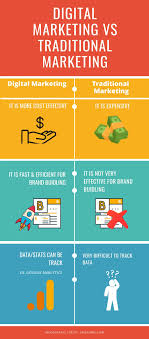What is Digital Marketing Strategy?
Digital marketing strategy refers to a comprehensive plan of action that outlines how a business or organization will use digital channels and platforms to achieve its marketing objectives. It involves leveraging various online tools and techniques to reach and engage with target audiences effectively.
Key Elements of a Digital Marketing Strategy:
- Target Audience: Identifying and understanding the specific demographics, behaviors, and preferences of the audience you want to reach.
- Goals and Objectives: Clearly defining what you want to achieve through your digital marketing efforts, whether it’s increasing brand awareness, driving website traffic, generating leads, or boosting sales.
- Channels and Tactics: Selecting the most suitable digital channels (such as social media, email marketing, SEO, PPC) and tactics to reach your target audience effectively.
- Content Strategy: Developing relevant and engaging content that resonates with your audience and aligns with your overall brand messaging.
- Data Analysis: Monitoring key performance indicators (KPIs) and metrics to measure the success of your campaigns and make data-driven decisions for optimization.
The Importance of Digital Marketing Strategy:
A well-defined digital marketing strategy is crucial for businesses in today’s digital age. It helps organizations stay competitive, build brand credibility, increase customer engagement, drive conversions, and ultimately achieve their business goals. By leveraging the power of digital channels strategically, businesses can reach a wider audience, personalize their messaging, track performance more accurately, and adapt quickly to changing market trends.
In conclusion, a solid digital marketing strategy serves as a roadmap for businesses to navigate the complex online landscape successfully. By understanding their target audience, setting clear objectives, utilizing the right channels and tactics, creating compelling content, and analyzing data effectively, organizations can optimize their digital marketing efforts for maximum impact.
9 Essential Tips for Crafting an Effective Digital Marketing Strategy
- Understand your target audience
- Set clear and measurable goals
- Utilize multiple digital channels
- Create valuable and engaging content
- Optimize for search engines (SEO)
- Utilize social media platforms effectively
- Monitor and analyze data regularly
- Stay updated on industry trends and best practices
- Test and adapt your strategies continuously
Understand your target audience
Understanding your target audience is a fundamental aspect of a successful digital marketing strategy. By delving deep into the demographics, behaviors, and preferences of your audience, you can tailor your messaging and content to resonate with them effectively. This insight allows you to create personalized experiences that engage and connect with your target market on a more meaningful level. Ultimately, by understanding your audience, you can craft campaigns that are more targeted, relevant, and impactful in driving results for your business.
Set clear and measurable goals
Setting clear and measurable goals is a fundamental aspect of a successful digital marketing strategy. By defining specific objectives that are achievable and quantifiable, businesses can effectively track their progress and determine the success of their campaigns. Whether the goal is to increase website traffic, boost online sales, or improve brand visibility, having clear metrics in place allows for better decision-making and optimization of marketing efforts. Clear and measurable goals provide direction, focus, and accountability, guiding businesses towards achieving tangible results in the digital landscape.
Utilize multiple digital channels
To maximize the effectiveness of a digital marketing strategy, it is essential to utilize multiple digital channels. By diversifying the platforms through which you engage with your target audience, such as social media, email marketing, SEO, and PPC advertising, you can reach a broader range of potential customers and increase brand visibility. Each channel offers unique advantages and allows for tailored messaging that resonates with specific segments of your audience. By leveraging multiple digital channels strategically, businesses can create a cohesive and integrated marketing approach that amplifies their reach and drives better results.
Create valuable and engaging content
Creating valuable and engaging content is a fundamental aspect of a successful digital marketing strategy. By providing content that is informative, entertaining, or inspiring, businesses can capture the attention of their target audience and establish credibility in their industry. Valuable content not only attracts potential customers but also keeps them coming back for more, fostering long-term relationships and brand loyalty. Engaging content encourages interaction, shares, and conversions, driving meaningful results for businesses in the digital realm.
Optimize for search engines (SEO)
Optimizing for search engines, commonly known as SEO (Search Engine Optimization), is a crucial aspect of any digital marketing strategy. By implementing SEO best practices, businesses can improve their online visibility and organic search rankings, making it easier for potential customers to find them on search engine results pages. This involves optimizing website content, meta tags, images, and other elements to align with relevant keywords and user intent. A strong SEO strategy not only drives more traffic to a website but also enhances its credibility and authority in the eyes of both users and search engines like Google.
Utilize social media platforms effectively
Utilizing social media platforms effectively is a crucial aspect of a successful digital marketing strategy. Social media provides businesses with a powerful tool to engage with their target audience, build brand awareness, drive website traffic, and generate leads. By creating engaging content, interacting with followers, and leveraging features like paid advertising and influencer partnerships, businesses can maximize their presence on social media platforms to connect with customers in a meaningful way. Consistent and strategic use of social media can help businesses foster relationships, increase brand loyalty, and ultimately drive conversions.
Monitor and analyze data regularly
Monitoring and analyzing data regularly is a crucial aspect of a successful digital marketing strategy. By tracking key performance indicators and metrics, businesses can gain valuable insights into the effectiveness of their campaigns, identify trends, and make informed decisions for optimization. Data analysis allows organizations to understand customer behavior, measure the impact of their marketing efforts, and adjust their strategies in real-time to achieve better results. Ultimately, staying vigilant in data monitoring empowers businesses to adapt to changing market dynamics and continuously improve their digital marketing performance.
Stay updated on industry trends and best practices
To enhance the effectiveness of your digital marketing strategy, it is essential to stay informed about the latest industry trends and best practices. By keeping abreast of emerging technologies, consumer behaviors, and market dynamics, you can adapt your strategies to remain competitive and relevant in a rapidly evolving digital landscape. Continuous learning and staying updated on industry developments will not only help you identify new opportunities but also ensure that your digital marketing efforts are aligned with current industry standards and customer expectations.
Test and adapt your strategies continuously
Testing and adapting your digital marketing strategies continuously is a crucial aspect of a successful approach. By regularly evaluating the performance of your campaigns, experimenting with different tactics, and analyzing data to identify what works best, you can optimize your efforts for maximum effectiveness. This iterative process allows you to stay agile, responsive to market changes, and constantly refine your strategies to achieve better results and reach your marketing goals more efficiently.



